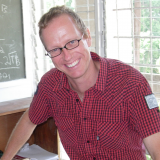Economic theory predicts that open access leads to myopic behaviour of fishermen, while improving property rights leads to more long-term decisions of fishermen.
In this study, we report the experiences from a co-managed fishery within the Gullmar fjord, which is a marine reserve by the Swedish West coast. A group of fishermen initiated an informal co-management of the fishery in 2002, which was later formalized. Six fishermen were granted exclusive collective user right to 100 fishing days annually during 2004-06, which they distributed evenly within the group. First, we note a dramatic increase in real revenues, where the price differential in comparison with Swedish off-shore shrimp grew from 15% to 75% during 2000-07. Second, the fishermen within the reserve voluntarily increased the mesh size from the legal minimum requirement of 35 mm to 45 mm in order to leave specimen to grow as long as it is optimal. Finally, a small informal market where fishers bought and sold fishing days within the group emerged, which indicates the potential scope for using individual transferable quotas as a means to reduce overcapacity that exist also in Swedish fisheries.
